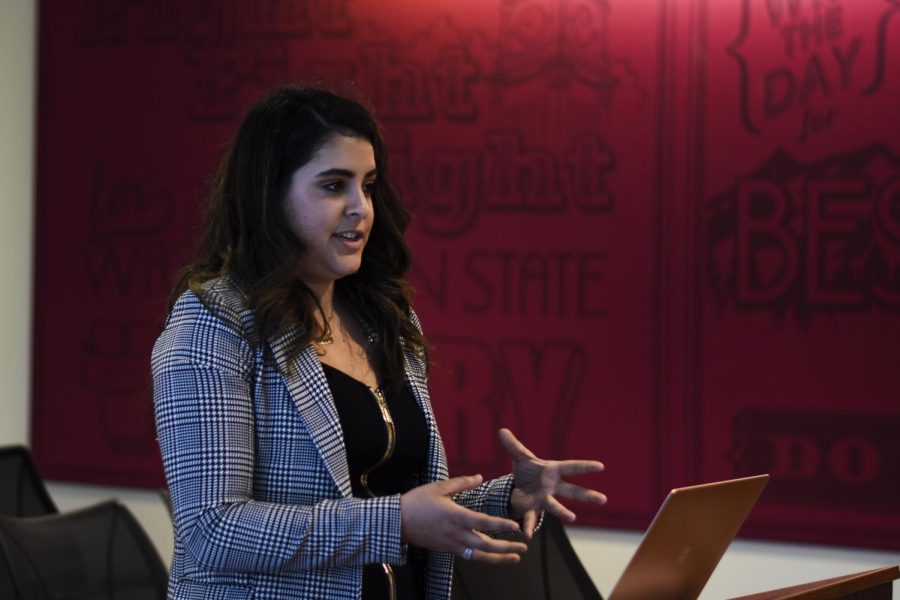Undocumented Initiatives create three funds for undocumented students
Applications available on Undocumented Initiatives website for the emergency assistance fund, DACA renewal fund, scholarship fund
BONNIE JAMES | DAILY EVERGREEN FILE
Linda Vargas, Undocumented Inititatives ambassador and sophomore environmental science major, said the DACA renewal fund brings the cost down to $250.
May 11, 2020
WSU Undocumented Initiatives worked with the Crimson Group to release the Crimson for a Cause Emergency Fund, which helps undocumented students financially during the coronavirus pandemic.
The two groups organized a fundraiser last fall to raise enough money for three funds within Crimson for a Cause. These funds are the emergency assistance fund, the DACA renewal fund, and the scholarship fund.
The emergency assistance fund gives $250 to undocumented students to help pay for living expenses. The fund is available to all undocumented WSU students even if they are non-DACA recipients.
Claudia Skinner, Undocumented Initiatives graduate assistant and first-year graduate student in American studies and culture, said the fund helps the organization identify what items students are struggling to afford. The fund also helps find resources for those students.
“When students fill out a Qualtrics form, they indicate to us what they need and what’s going on in their lives,” she said. “Based on that, we can connect them to resources that can assist in finding those materials.”
The DACA renewal fund provides half the cost of a DACA renewal to students. A DACA renewal normally costs around $500, but the renewal fund brings the cost down to $250.
Linda Vargas, Undocumented Inititatives ambassador and sophomore environmental science major, said the renewal fund allows students to receive money that they do not have to pay back.
“DACA renewals cost about $500,” she said. “That’s very costly for college students who sometimes are struggling to have enough money to buy a cup of ramen noodles.”
The remaining fundraiser money was set aside for the scholarship fund. The Crimson Group created an application where students can apply on their website.
Vargas said the assistance fund has been the most used fund since the COVID-19 shutdown began.
“The federal government said the money going to universities and states for COVID relief will not be eligible for undocumented students,” she said. “So this is just another way that they can access funds and be able to afford their living expenses and pay their rent during these times.”
Skinner said WSU Undocumented Initiatives plans to host bi-annual fundraisers rather than annual fundraisers.
“The amount of money we were able to raise was really fantastic and that wouldn’t have been possible without the donations of those who attended the fundraiser,” she said. “I think that shows we can do important work in the months to come.”
Undocumented students can now apply for the DACA renewal and the emergency assistance fund in the same semester.
Undocumented students can also apply for financial assistance on the Betancourt Macias Family Scholarship Foundation website. Undocumented students living in Washington can apply for the COVID-19 Relief Fund for Undocumented Individuals on the Washington State website.









